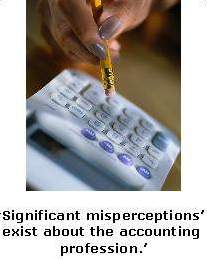 ReConnect Africa is a unique website and online magazine for the African professional in the Diaspora. Packed with
essential information about careers, business and jobs, ReConnect Africa keeps you connected to the best of Africa.
ReConnect Africa is a unique website and online magazine for the African professional in the Diaspora. Packed with
essential information about careers, business and jobs, ReConnect Africa keeps you connected to the best of Africa.



 A new study asks whether enough is being done to balance ethnicity in the US tax profession.
A new study asks whether enough is being done to balance ethnicity in the US tax profession.The tax profession in America is under a tremendous pressure for change, according to a recent study, "Minorities in Tax 2010" and one area which is significantly impacted is the evolution of diversity within the profession and how this compares to the overall United States' civilian labour pool.
The study, conducted by TaxDiversity, a web site dedicated to strengthening the tax profession through diversity, analyses and compares findings from 2002 with those of 2008 to answer the question Are we doing enough to balance ethnicity in the tax profession?'
The tax profession has made very limited strides in attracting and advancing minorities and, more alarmingly, appears to lack the necessary catalysts to propel the number of minorities to levels that would compare with other professions.
The bottom line, say the organisers of the study, is that the tax profession is still White-dominated, although the growing trend of White retirement in tax will lead to significant opportunities for the other three major minority groups identified in this study: Asians, Blacks, and Hispanics.
The tax profession has made very limited strides in attracting and advancing minorities.
However, according to the data within the report, even though some areas of positive change have been noted since 2002, "the tax profession at large is simply not doing enough to attract, retain, and advance minorities into long-term career positions, especially positions in senior management."
Using data from the United States Bureau of Labor, the Internal Revenue Service (IRS) and the Big 4 public accounting firms, the reports authors note that while the percentage of the White population in the Degreed Civilian Labor Force (CLF) has remained constant since 2002 at 78%, between 2002 and 2008 there has been a decrease of 20% in the Black population, while Asians and Hispanics have seen an increase of 14% and 20% respectively. Yet, new Accounting graduates appear to be more diverse, with the proportion of White to Non-White accounting graduates having shifted from a ratio of 75%: 25% in 2002 to 68%:32% in 2008.
Within the Government (Public Sector), minority candidates overall are well represented, although Black candidates are more attracted to the IRS (20% representation in 2008nearly a 10% increase annually over 6 years) than to the Private Sector (4% representation in 2008 is a 4% increase annually over 6 years) and have a better representation in the IRS than in the overall CLF.
Within the private sector, it is clear, says the study, that at all career levels Blacks are under-represented, but especially at the senior level, where the percentage of Black professionals drops to only 2% (although that represents a 100% increase from 2002 to 2008).
By contrast, Asians are well-represented at all staff levels although there is a slight drop off at the senior level, while Hispanics seem to have made little-to-no progress in the private Sector, showing a 15% increase over 6 years at all staff levels.
On one hand, while the private sector continues to show progress in recruiting a pipeline of more diverse candidate pool at junior levels, they also, on the other hand, continue to face challenges in retaining these diverse candidates at the more senior levels. The picture for minorities within corporate in-house tax departments also shows that minority candidates are under-represented at 6% as opposed to 12% in accounting in the private sector.
The key findings from the report show that Asians in America have made the most significant jump in representation (up over 30%) over the six years and now make up nearly 20% of the workforce in public accounting.
Blacks, by contrast made a 25% increase, while Hispanics only increased 20% in the same period. However, even though Blacks have made an increase, they still only represent 4% in accounting in this sector and are not moving into senior management at the same rate as Asians and Hispanics.
 Due to retirement, a significant decrease in the White population has been seen in the government sector, and White accountants are exiting the tax profession at a faster rate as a whole. The percentage of Blacks in government sector tax has increased dramatically (12% to 20%) as Blacks are using government service as their primary entrance path into tax.
Due to retirement, a significant decrease in the White population has been seen in the government sector, and White accountants are exiting the tax profession at a faster rate as a whole. The percentage of Blacks in government sector tax has increased dramatically (12% to 20%) as Blacks are using government service as their primary entrance path into tax.
When it comes to overall tax industry trends, though, Blacks are not integrating effectively into public accounting or reaching management positions while, in tax at least, Hispanics generally mirror their civilian work force employment percentage.
A key reason why the number of Black students who choose to major in accounting during college still remains low is that significant misperceptions exist about the accounting profession, according to a study conducted by the CPA Journal, "Examining Minorities' Perceptions of Accounting."
These misperceptions begin before students enter college, with the findings from the study suggesting that high-school teachers and counsellors "are important influences on students' choice of a major and that the accounting profession should reach out to Black students when they are still in high school to dispel myths and stereotypes about the practice of accounting.
The problem of diversity is prevalent in the tax industry and, according to the report, if things are left unchanged, "the tax profession will continue to struggle to achieve an ethnic balance."
The report recommends some key initiatives to positively influence diversity in tax, from improving the influx of diverse tax employees to more effective career advancement of minorities in the field.
Within the private sector, the authors of the report recommend that accounting firms take a far broader approach to recruiting and include a larger pool of schools with accounting programs, as well as encourage second-tier schools to enhance their tax and accounting courses.
If things are left unchanged, "the tax profession will continue to struggle to achieve an ethnic balance."
As Blacks and Hispanics are less likely to attend schools that accounting firms traditionally recruit from, they urge firms to extend their traditional recruiting practices while also creating more advanced education partnerships with recent graduates to help them reach their academic potential and integrate faster into more senior level positions. Mentoring programmes will also help to connect senior accounting professionals with new talent coming into the profession.
Corporate tax departments, they say, should adopt more aggressive internship programmes to close the gap in attracting young and diverse tax candidates and escalate such employees, once they are on board, through effective training, education, and mentoring programs.
"The challenges of diversity in the tax profession are not easily met without an industry-wide recognition that business as usual will simply not work any longer," says the report. The tax profession must do a better job of recruiting, training, and elevating diverse professionals in the field. Though there have been some strides made in the last six years, the bottom line is more efforts must be made on all fronts as the profession continues to face growing employment and workload demands on all levels and areas in tax."
For more information: "Minorities in Tax 2010" and www.TaxDiversity.com
